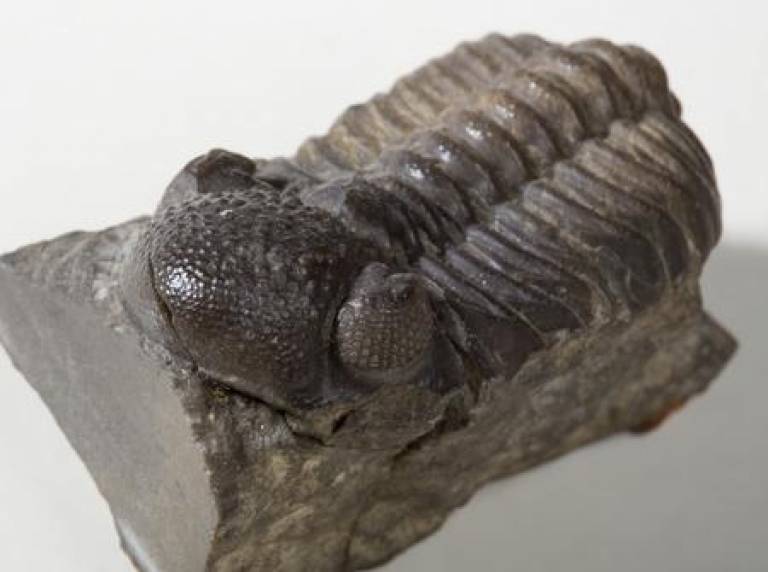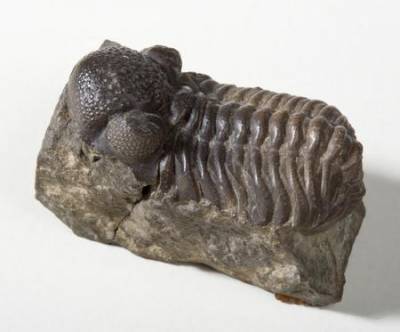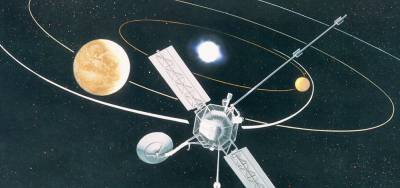Fossil trilobite
7 October 2013

Geology is not just about sterile, lifeless phenomena. The Earth's evolution over time has been driven in large part by life. The oxygen in the atmosphere was not present before life created it, thanks to photosynthesis by primitive algae around 2.5 billion years ago.
Rocks, too, are greatly influenced by life. The white cliffs of Dover are formed of chalk deposited by countless generations of marine organisms in the distant past.
The most famous and most obvious influences of life on rocks, though, are fossils.
This superb specimen of a trilobite is part of UCL's Geology Collections. Trilobites died out around 250 million years ago, though a distant relative, the horseshoe crab, still lives today. Despite being long-extinct, perfectly preserved specimens like these are quite common.

Photo credit: UCL Geology Collections
Links
High resolution image
Picture A
Picture B
These images can be reproduced freely providing the source is credited
 Close
Close




